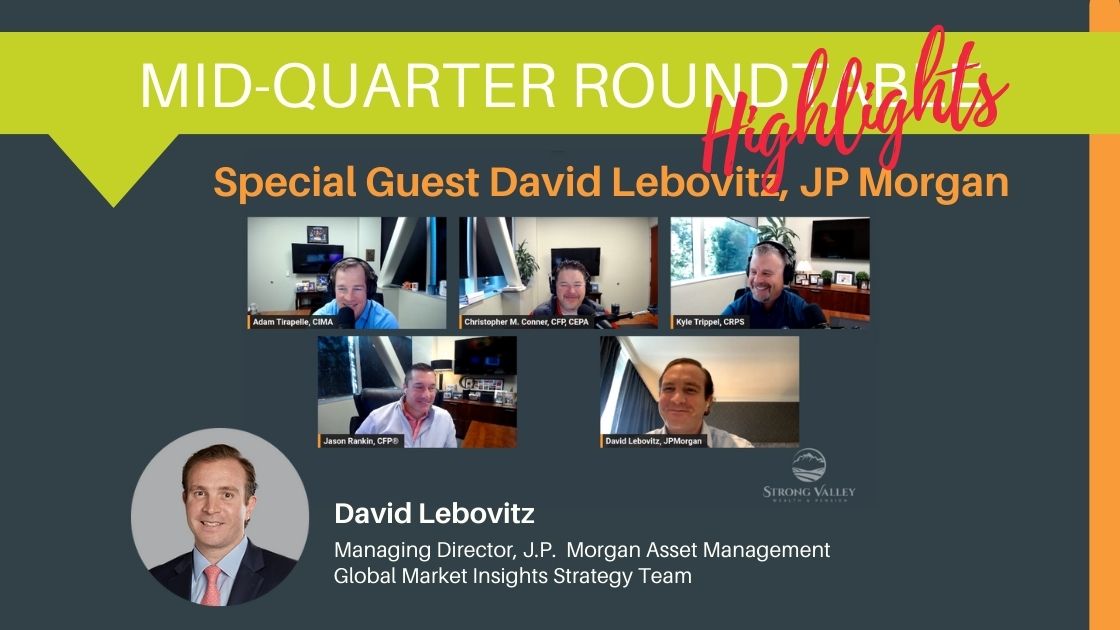You are now leaving the Strong Valley Wealth & Pension, LLC ("Strong Valley") website. By clicking on the "Schwab Alliance Access" link below you will be entering the Charles Schwab & Co., Inc. (“Schwab”) Website. Schwab is a registered broker-dealer, and is not affiliated with Strong Valley or any advisor(s) whose name(s) appears on this Website. Strong Valley is/are independently owned and operated. Schwab neither endorses nor recommends Strong Valley. Regardless of any referral or recommendation, Schwab does not endorse or recommend the investment strategy of any advisor. Schwab has agreements with Strong Valley under which Schwab provides Strong Valley with services related to your account. Schwab does not review the Strong Valley website(s), and makes no representation regarding the content of the Website(s). The information contained in the Strong Valley website should not be considered to be either a recommendation by Schwab or a solicitation of any offer to purchase or sell any securities.

Have you considered how to minimize income taxes in retirement? This article covers strategies that can potentially reduce the tax burden on your retirement income. It provides insight into some beneficial approaches you can consider in your long-term approach.

One of the most overlooked but critical areas of retirement planning is tax efficiency. After all, it’s not just what you earn – it’s what you keep. For many retirees, smart tax planning can extend the life of a portfolio, reduce Medicare costs, and help avoid paying unnecessary taxes on Social Security benefits.
New Tax Landscape in 2025
Recent updates to the tax code have increased the standard deduction for individuals and married couples, aged 65 and older. These increases simplify filing and reduce taxable income for many retirees – but they also open the door to more nuanced tax planning strategies, especially when drawing income from a mix of taxable, tax-deferred, and tax-free accounts.
Top Tax Reduction Strategies for Retirees
1. Roth Conversions. Converting assets from a traditional IRA to a Roth IRA during low-income years can help reduce Required Minimum Distributions (RMDs) in future years and create a pool of tax-free retirement income. Partial conversions – done strategically over multiple years – can minimize the risk of bumping into higher tax brackets or triggering Medicare IRMAA surcharges.
2. Long-Term Capital Gains Harvesting. The 0% federal long-term capital gains tax bracket for taxable income increased for both individuals as well as married couples for 2025. This presents a unique opportunity for retirees to sell appreciated assets and rebalance portfolios without triggering capital gains taxes – provided they remain within the income thresholds. Check with a financial professional to see if this is would be beneficial.
3. Qualified Charitable Distributions (QCDs). For those who are aged 70½ or older, with significant resources, there’s an opportunity to make large donations, annually, from an IRA directly to a qualified charity. This counts towards the RMD and excludes the donated amount from taxable income. It’s a smart way to support important causes while lowering the tax bill. For additional details check with a trusted advisor.
4. Asset Location Optimization. Where investments are held matters. Tax-inefficient holdings like bonds or REITs may be better suited for tax-deferred accounts, while long-term equity investments may belong in taxable accounts where favorable capital gains rates apply. This allocation can reduce annual tax drag and boost after-tax returns over time.
5. Withdrawal Sequencing. The order in which to draw down assets can dramatically affect the tax burden over a lifetime. A common guideline is to first withdraw from taxable accounts, then tax-deferred accounts (like IRAs and 401(k)s), and finally Roth accounts. This approach defers taxable income and preserves tax-free growth longer.
Tax Planning is Year-Round, Not Just in April
Effective tax planning doesn’t begin in March and end in April – it’s a year-round discipline. Retirees should monitor not only their income levels, but also market conditions and policy changes that can affect tax thresholds. Year-end rebalancing, mid-year Roth conversions, and early-in-the-year QCD planning can all work together to ensure a retiree keeps more of their hard-earned savings.
Work with a financial advisor and tax professional to customize your plan and make proactive moves rather than reactive ones. With inflation threatening, healthcare costs rising, and income sources increasingly diverse, efficient tax strategy is one of the most powerful tools in your retirement toolkit.



